Candice Evenson
Contributing writer for The Artifice.
Correspondent I
- Plebian Penman
- Common Writer
- Lurker
- Pssst
- Hand Raiser
- Sharp-Eyed Citizen
- Town Watch
- Detective Deskman
- Penman Patrol
- Animator
- Article of the Month
- ?
- Articles
7 - Featured
6 - Comments
73
- Ext. Comments
35 - Processed
61 - Revisions
59
- Topics
0 - Topics Taken
0 - Notes
17
- Topics Proc.
0 - Topics Rev.
0
- Points
3667 - Rank
36 - Score
1955
Latest Articles
Latest Comments
| Phantom of the Opera and the Problem of "Shipping" | |
Thanks Runi! Ha—it’s not embarrassing. Just very accurate for the “intelligence” of that monitoring system. After all this time, the memory is still very strong. I remember that year we said we would make it a goal NOT to win the cup for Slytherin and actually do something else with our time. We have to set limits to our ambition or it will get out of control. | The Lost Civilization of Pottermore |
Thank you Stephanie! When I began as a beta tester for Pottermore, I was in the middle of learning about ethnography in my first cultural anthropology class. It opened my eyes, so I decided that I would take the opportunity to record how the culture developed on Pottermore from the very beginning. The next step was to analyze the “fall” of Pottermore after I got over the shock. For me, Pottermore represents the very heart of culture: that it is organic, always changing and growing, and that it cannot be forcibly imposed. It comes from the people, the resources, the conditions, and the shared knowledge and creativity that they have to work with. Thanks for reading! | The Lost Civilization of Pottermore |
Ah! Thank you Andrew. I’d forgotten about the statuses. | The Lost Civilization of Pottermore |
Uh oh. Rant time. History of Magic in North America has opened up a whole new can of worms………I felt uneasy reading it, and went looking to see if anyone else had felt the same discomfort. As you might know by now, several articles have been written on the subject– not only criticizing the mystification and generalization of Indians, but also the whole story of how the brief witch trials contributed to magical immigrants avoiding North America for much of history. Not only that, but the MACUSA predates the continental congress and even the concept of “The United States of America”–suggesting some connection or inspiration. My main quarrel with it, which I haven’t really seen addressed anywhere yet, is the portrayal of wizards and witches. They are basically spared any blame by history unless they were scourers. The message she makes is that English witches and wizards were not involved in the bloody westward expansion of Northern America. The question remains that if they were so good and powerful, why wouldn’t they stand up for their Indian “brethren” and fight back with magic? Because History, of course. Their innocence is what gives the articles that feeling of a bad textbook that is trying to sweeten history so that it doesn’t make the wrong people look bad. Even though I know it’s fiction, I can’t help but read with that same skepticism. Examples: “skin walkers,” she asserts, are actually animagi who have been falsely accused of evil. The bad wizards and witches were really fraud No-majs. Some wizarding folk were fleeing persecution in Europe and would often hide among the No-maj settler and Native American population. Witches in Salem were utterly innocent (while some of the judges were evil scourers!). In that last instance she would have done better to focus on the No-majs who were caught up in the hysteria instead of saying “a number of the dead were indeed witches” and then going on to describe the No-majs who had suffered. As though by necessity to spare the magical folk of blame and to make them these misunderstood good guys, they must be contrasted by the blatantly evil scourers. I have spent a lot of energy pondering how it could have been done better, but it is difficult to articulate my feelings about it, especially with everyone yelling “Relax, it’s only fantasy!” Basically, it feels too much like a rewrite of history than a parallel, magical history. As it has all been published on Pottermore (and since they promote a movie which likely draws directly upon the same historical concepts) I suppose they are “canon” now and cannot be taken back. | The Lost Civilization of Pottermore |
Thank you 🙂 | The Lost Civilization of Pottermore |
Thank you! | The Lost Civilization of Pottermore |
😀 Yes, I definitely am interested in the Patronus quiz (I’m hoping that there will be hundreds of possibilities to increase variety– though that may be far-fetched. ) And you bring up a good point! That would have been a much different experience in the Old Pottermore because the common rooms would have all been abuzz with people discussing their patronus and creating art. | The Lost Civilization of Pottermore |
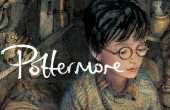

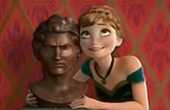
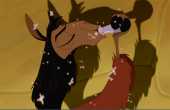
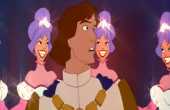
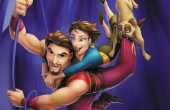

Have I told you how much I love this article yet? You do a fantastic job of cutting through the “Erik Vs Raoul” romance war and saying “hey—there’s a story being told here about what love is. Let’s not be torn between two guys—let’s think about what they represent.” When we do that, it’s easy to see the beginning, middle, and end all structure around this theme of love Vs lust. It was interesting when you pointed out the language of the Phantom’s supposed “love” songs show selfishness and obsession. Is it passionate? Yes. Is it love?….No. And so to focus on shipping aspect is to be so swept up by passion that we ignore that theme and the fact that, as you say, the phantom’s act of mercy is the first demonstration of true love that he has made.
That tragic character growth most certainly makes for a fitting end therefore. Letting Raoul and her free was an act of love at the cost of his own happiness— so to say that he should have been with Christine is to entirely miss the point. That is IF he would even have been happy had she stayed with him. At this point she would have been his prisoner and it is difficult to imagine them being happy together given the circumstances. That was a fantasy in his own head.
I also like how you touch briefly on Love Never Dies. I had thought that maybe I just opposed it because I didn’t want there to be a sequel to such a classic, but you nailed it. Once again it is about the STORY of the Phantom of the Opera. The end makes for a neat conclusion, with the phantom’s epiphany and the theme of love being emotionally driven home. That’s taken away by opening the story back up with a continuation that seems like Erik took up writing self-indulgent fanfiction after things didn’t work out at the opera house.
-Constellation